Photo essay: refugees from Bhutan
In Bhutan, a Himalayan country famed for its focus on Gross National Happiness, the Nepalese minority has been forced out. Anna Husarska traveled to their refugee camps to document their plight
Born in Bhutan, a Himalayan country of less than a million inhabitants, this woman will probably never again see her homeland; this photo was taken in one of the seven refugee camps in the southeast of Nepal where over a 100.000 Bhutanese of Nepalese origin – like her- have lived since the early 1990s.
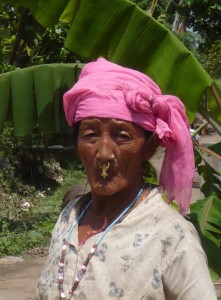 This is when the king of Bhutan introduced a very harsh new citizenship law, which excluded the majority of the Bhutanese of Nepalese origin (called Lhotshampas, or “people of the south”) no matter how many proofs of citizenship they had. Most of them fled or were forced out.
This is when the king of Bhutan introduced a very harsh new citizenship law, which excluded the majority of the Bhutanese of Nepalese origin (called Lhotshampas, or “people of the south”) no matter how many proofs of citizenship they had. Most of them fled or were forced out.
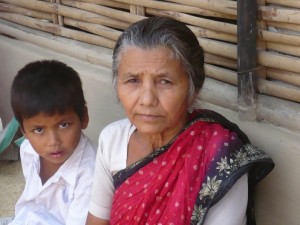
Suddenly under this “Bhutanization” process, all citizens were required to produce tax receipts from three decades before (from 1958, not before not after) and even then, it was often not accepted. A strange “cultural cleansing” started in which normally cherished elements (language, traditional dress) became tools of persecution. “Some knowledge of dzongkha language” became a requirement for citizenship, so was observing the traditional code of values, dress, and etiquette of Drukpas, the dominating Tibetan Buddhists. This woman, an ethnic Nepalese of Hindu religion, had to flee. Her grandson was born in Nepal.
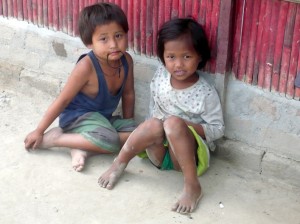
The situation of this refugee group is full of contradictions. These children sing in the refugee camp’s school an anthem to the glory of the Bhutanese king whom they never knew and whose father threw their parents – or grandparents – out. After over a hundred years of absolute monarchy, in 2008 Bhutan became democracy by… royal decree and it even held elections, although the campaigning was said to be carried out only reluctantly.
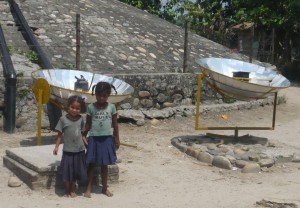
Thanks to international solidarity the refugee camps for the Nepalese are good camps as camps go – they offer schools for children, adult education, health services, etc. There are even sophisticated reflection bowls for cooking. What has always been lacking were perspectives. A few years ago, a few Western countries offered resettlement as a durable solution. It has benefitted until now some 20,000 Bhutanese and others are on the waiting list, which is good news given that the status quo is not possible – in October the World Food Program had to cut food aid to the refugees and to prevent more cuts it said it needs $4 million from donors.
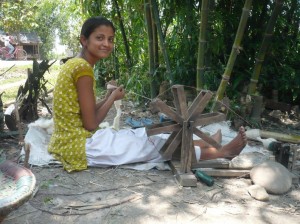
The main obstacle to local integration is the Nepalese government’s refusal to recognize the Bhutanese as refugees (Nepal is not signatory to the refugee convention). Yet local integration – with subsequent Nepalese citizenship – would have been easy, because there is no linguistic barrier; the refugees and the host community speak the same language. As it stands now, the status of the Bhutanese refugees is very precarious: they lack resources, perspectives and frankly something to do. Livelihood programs such as waving are rare and mostly done for internal consumption.
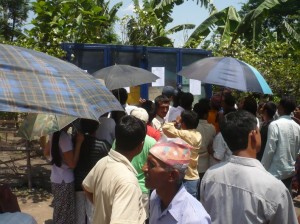
The enthusiasm for resettlement was far from general at the beginning, because at first the Bhutanese were worried that accepting departure from the region was forfeiting their chances to return to Bhutan. But despite many rounds of talks between Nepal and Bhutan no refugees have gone back and India does not allow the refugees onto its territory, which lies between the two countries. Then, two years ago United States offered to take 60.000 Bhutanese; other countries ready to have Bhutanese come and resettle were: Australia, New Zealand, Canada, the Netherlands, Norway and Denmark. The United Nations refugee agency, the UNHCR, started referring those willing to go to a third country, and now crowds gather every time the list for departures is posted.
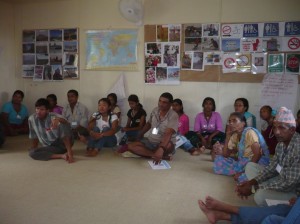
Once the refugees express their desire to be resettled and it is determined to which country they will go, they are given cultural orientation classes to prepare them for their new home – different for children and grown ups, and tailored for the destination country. While adults sitting on the floor around the teacher were learning how to pack their luggage to go to the United States, children in the cultural orientation for Norway were asked to write down what they knew before classes about Norway (“fish,” “snow,” “wooden houses”) and what they had learnt since (“democracy,” “how to use a toilet”).
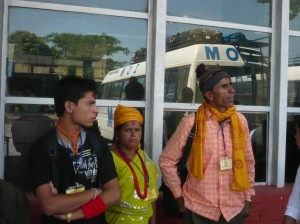
The International Migration Office, IOM, a UN-affiliated intergovernmental organization arranges the logistics of transport of the refugees from the camps or other settings in the country of temporary asylum when they are being resettled; in Nepal IOM also runs the “overseas processing entity” which is responsible for the processing of refugees on behalf of the US State Department: screening them for resettlement, conducting medical examinations, arranging for travel documents, etc. A complex operation that functions like clockwork.
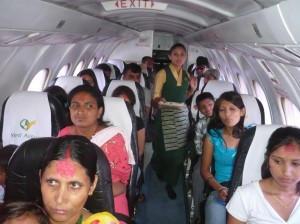
Because the “warehousing” has gone on for so long, the refugees are particularly well prepared to start a new life in a third country, but nothing prepares them for flights. The first one is on Yeti airlines from Damak in the south of Nepal to Kathmandu where IOM has a transitional center which softens the cultural shock by placing the refugees in a “Western” setting (dormitories, dining rooms with tables and chairs, sitting toilets) while they await the final flight to their new homelands.
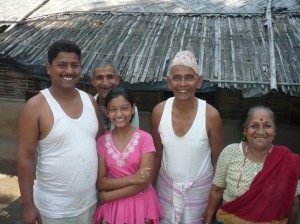
The beaming smiles displayed by this Bhutanese family seem to embody the “gross national happiness” index, that was invented by the king of Bhutan (who boasts about the happiness of those Bhutanese whom he did not chase away from their homeland!). They are smiling because they have just been notified that they will be resettled to the United States. Given the unwillingness of Bhutan to take back its citizens forced to leave ancestral lands and the unwillingness of Nepal to let them integrate locallyresettlement to third country is the only available option, and it is now almost universally accepted among the Bhutanese refugees in Nepal. At the time of the writing, the family is enjoying their new home in Woodside, NY, having been resettled by the International Rescue Committee.
Anna Husarska is Senior Policy Adviser at the International Rescue Committee. Reproduced from Opendemocracy.com
